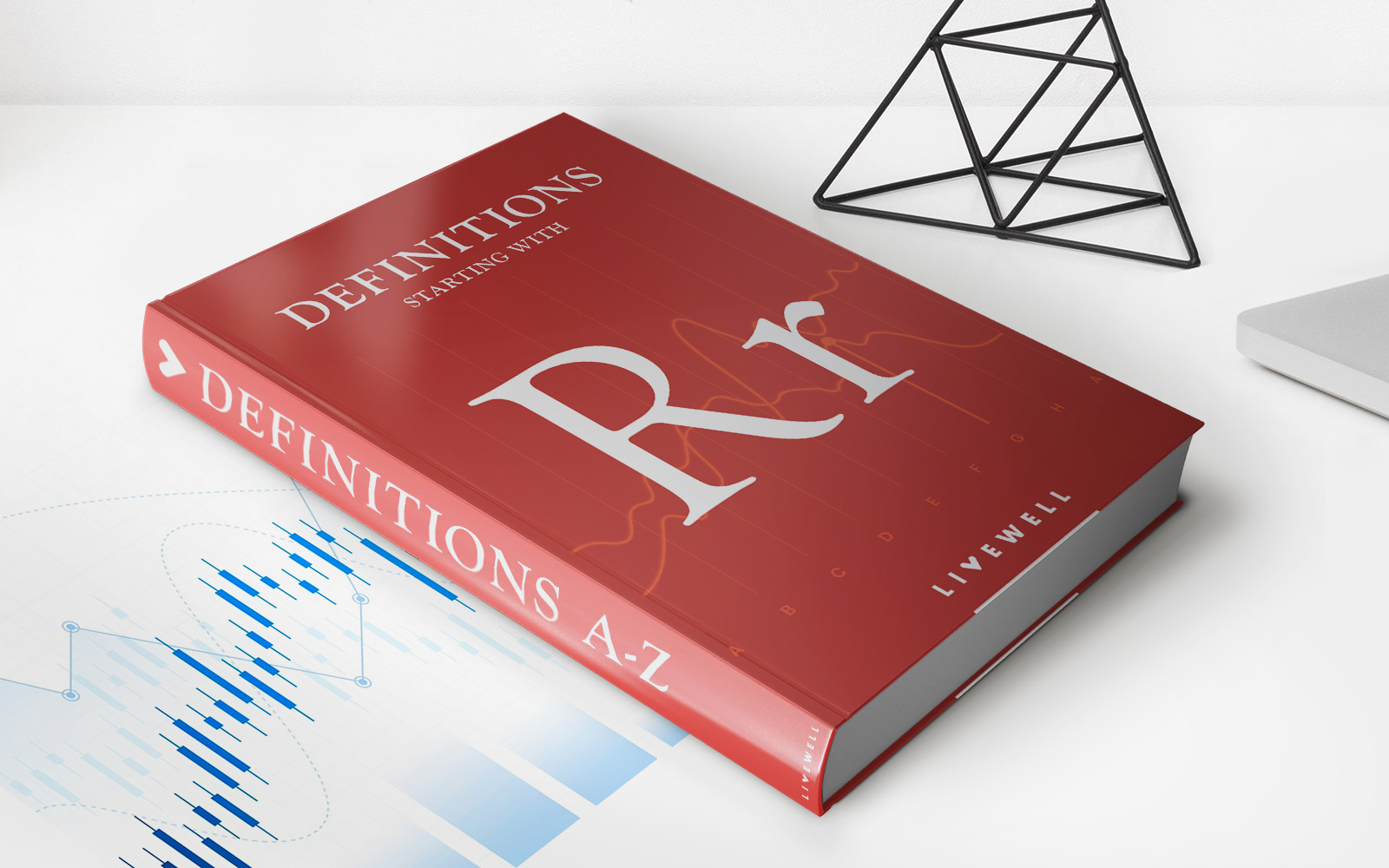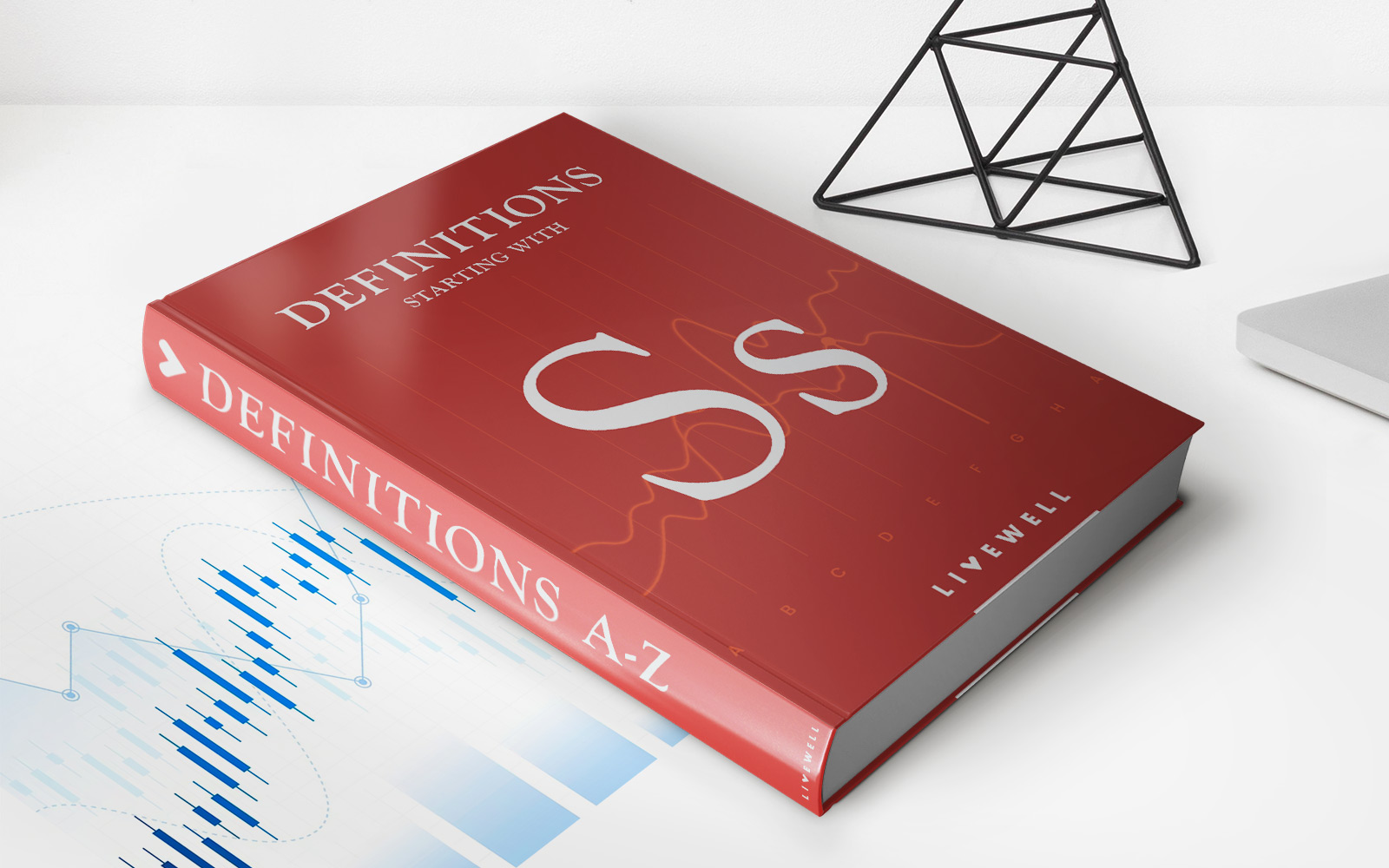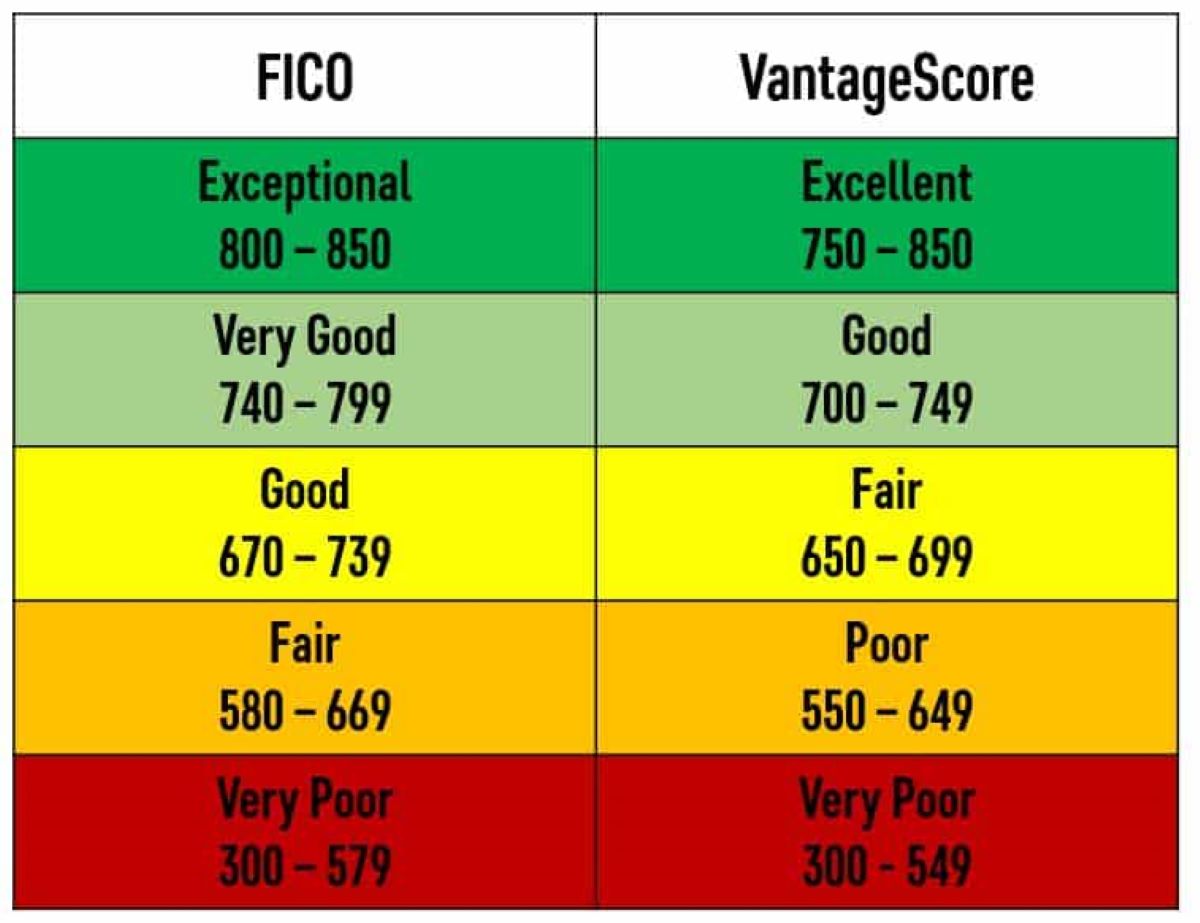Home>Finance>Which Is The Most Important Question To Ask When Comparing Credit Card Offers?


Finance
Which Is The Most Important Question To Ask When Comparing Credit Card Offers?
Published: November 5, 2023
Learn what question you should ask when comparing credit card offers in order to make an informed financial decision. Discover the key factors to consider and find the best credit card for your needs.
(Many of the links in this article redirect to a specific reviewed product. Your purchase of these products through affiliate links helps to generate commission for LiveWell, at no extra cost. Learn more)
Table of Contents
Introduction
When it comes to choosing a credit card, there are numerous factors to consider. Each credit card offer boasts different features, benefits, and terms, making it important to compare them thoroughly before making a decision. However, amidst the sea of options, there is one crucial question that stands out as the most essential: Which credit card offer is the right fit for my needs?
Before diving into the intricate details, it’s important to understand your personal financial goals and lifestyle. Do you plan to use the credit card for everyday expenses, or is it primarily for emergencies? Are you looking to earn rewards or cash back, or do you prioritize a low-interest rate? Answering these questions will help guide your decision-making process and enable you to ask the right questions when comparing credit card offers.
With that in mind, let’s explore the key factors you should consider and the important questions you should ask when assessing credit card offers, from interest rates to reward programs, fees, customer support, and additional perks.
Annual Percentage Rate (APR)
One of the most important factors to consider when comparing credit card offers is the Annual Percentage Rate (APR). The APR is the interest rate charged on outstanding credit card balances. It is crucial to understand the APR as it directly affects the cost of borrowing and can significantly impact your overall financial situation.
When assessing credit card offers, you should inquire about the APR and determine whether it is a fixed rate or a variable rate. A fixed-rate APR remains constant over time, providing stability and predictability in terms of interest charges. Conversely, a variable-rate APR is subject to change based on fluctuations in the market and can result in higher or lower interest payments.
Furthermore, it is important to ask about any introductory APR offers. Many credit cards entice new customers with promotional rates, where the APR is significantly lower or even at 0% for a certain period. This can be advantageous if you plan to make a large purchase or transfer balances from other credit cards, but it’s essential to know when the promotional period ends and what the APR will be afterward.
Additionally, certain credit cards offer different APRs for purchases, balance transfers, and cash advances. So, it is imperative to clarify these rates and assess their implications based on your credit card usage behavior.
Understanding the APR and its terms is crucial for managing your credit card balances effectively and avoiding substantial interest charges. Be sure to ask questions such as:
- What is the APR for purchases, balance transfers, and cash advances?
- Is the APR fixed or variable?
- Are there any introductory APR offers? If so, when does the promotional period end?
- What will the APR be after the promotional period ends?
By considering these key questions and obtaining a clear understanding of the APR, you can choose a credit card offer that aligns with your financial goals and minimizes interest costs.
Reward Programs
One of the enticing features of credit cards is the opportunity to earn rewards for your spending. Reward programs vary widely among credit card offers, so it is important to assess the available options and determine which one suits your needs and preferences.
When comparing credit card offers, inquire about the type of rewards program offered. Some credit cards provide cash back on purchases, while others offer travel rewards, points that can be redeemed for merchandise, or even airline miles. Consider your spending habits and think about which type of reward is most valuable to you.
Next, ask about the earning rate for rewards. Different credit cards may offer varying rates of rewards for different categories of spending, such as groceries, dining, or gasoline. Understanding the earning rate will help you determine how quickly you can accumulate rewards and maximize their value.
In addition to earning rewards, it is important to consider how easily you can redeem them. Some credit cards have restrictions or blackout dates, making it difficult to redeem rewards when you want to use them. Others offer more flexibility, allowing you to redeem your rewards at any time and for a variety of options.
Other factors to consider when comparing reward programs include any annual fees associated with the credit card, as well as any bonus rewards or sign-up offers that may be available. Some credit cards may offer a substantial number of bonus rewards for spending a certain amount within a specified time period.
As you assess reward programs, some important questions to ask include:
- What type of rewards program does the credit card offer?
- What is the earning rate for rewards?
- Are there any restrictions or blackout dates for redeeming rewards?
- Are there any annual fees associated with the credit card?
- Are there any bonus rewards or sign-up offers available?
By considering these questions and evaluating the reward programs of different credit card offers, you can select a card that aligns with your spending habits and allows you to maximize the benefits of your purchases.
Introductory Offers and Promotions
When comparing credit card offers, it’s essential to pay attention to any introductory offers or promotions that may be available. These incentives can provide significant value in the initial months or years of card ownership and can greatly influence your decision.
One common type of introductory offer is a 0% APR for a specific period. This means that you won’t be charged any interest on your purchases or balance transfers for a set timeframe, which can be beneficial if you plan to make a large purchase or want to consolidate debt from other credit cards.
Another type of promotional offer is a bonus cash back or rewards program. Some credit cards may offer a higher percentage of cash back or rewards for the first few months as an incentive for new cardholders.
It’s important to note the duration of the promotional period and what the terms will be once it ends. Will the APR increase significantly after the promotional 0% period? Will the cash back or rewards rate drop to a lower percentage? Understanding these details will help you determine the long-term benefit and value of the credit card offer.
Additionally, be aware of any fees or limitations associated with the introductory offers. Some credit cards may charge a balance transfer fee or annual fee, which could reduce the overall value of the promotion. Take the time to calculate the potential savings or rewards you can earn during the introductory period and compare it to the associated fees.
When assessing the introductory offers and promotions, consider asking the following questions:
- Is there a 0% APR introductory period? If so, how long does it last?
- Are there any bonus cash back or rewards programs for new cardholders?
- Will there be any changes to the terms and rates after the promotional period ends?
- Are there any fees associated with the introductory offers?
By carefully considering these questions and evaluating the benefits and terms of any promotional offers, you can make an informed decision and take full advantage of the introductory benefits provided by credit card offers.
Fees and Penalties
When comparing credit card offers, it’s crucial to understand the fees and penalties associated with each offer. These costs can greatly impact the overall value and affordability of a credit card, so it’s important to ask the right questions and evaluate them carefully.
Common fees associated with credit cards include annual fees, balance transfer fees, cash advance fees, and foreign transaction fees. Annual fees are recurring charges that you pay every year for holding the credit card, while balance transfer fees are incurred when you move balances from one credit card to another. Cash advance fees apply when you withdraw cash using your credit card, and foreign transaction fees are charged when you make purchases in a currency other than your own.
Penalties are another aspect to consider. Late payment fees and over-limit fees can significantly increase your credit card expenses if you fail to make timely payments or exceed your credit limit. It’s important to understand the specific penalty amounts and how they may affect your finances.
As you compare credit card offers, it’s important to ask the following questions about fees and penalties:
- Is there an annual fee associated with the credit card?
- Are there balance transfer fees or cash advance fees?
- What are the foreign transaction fees?
- What are the penalties for late payments and exceeding the credit limit?
By considering these questions and understanding the fees and penalties associated with credit card offers, you can choose a card that aligns with your budget and minimizes unnecessary expenses.
Credit Limit
The credit limit is an important factor to consider when comparing credit card offers. It determines the maximum amount of credit that the credit card issuer will extend to you.
The credit limit is typically based on various factors, including your credit history, income, and creditworthiness. It’s important to know the credit limit associated with each credit card offer, as it can impact your purchasing power and ability to manage your finances.
When evaluating the credit limit, consider your personal financial needs and spending habits. If you plan on using the credit card for larger purchases or everyday expenses, you may want a higher credit limit to accommodate your needs. However, it’s important to ensure that the credit limit is realistic and manageable, as excessive credit limits can lead to overspending and potential financial difficulties.
Additionally, some credit card offers may allow for credit limit increases over time based on your responsible credit usage and payment history. Inquiring about the potential for credit limit increases can be beneficial if you foresee your needs changing in the future.
When comparing credit card offers, ask the following questions regarding the credit limit:
- What is the credit limit associated with the credit card offer?
- Is there potential for credit limit increases in the future?
By understanding the credit limit associated with each credit card offer and evaluating it based on your financial needs and goals, you can choose a credit card that provides an appropriate amount of credit to support your spending habits while ensuring responsible financial management.
Customer Service and Support
When considering credit card offers, it’s important to evaluate the quality of customer service and support provided by the credit card issuer. Having access to reliable and responsive customer service can make a significant difference in your overall credit card experience.
Customer service can be assessed by considering factors such as the availability of customer support channels, the responsiveness of representatives, and the overall reputation of the credit card issuer in handling customer inquiries and concerns. Look for credit card issuers that offer multiple channels of communication, such as phone, email, or online chat, to address any questions or issues that may arise.
You may also want to research the credit card issuer’s reputation for customer service by reading customer reviews and feedback. This can provide valuable insights into how well they handle customer inquiries, address concerns, and provide assistance when needed.
Furthermore, it’s important to inquire about any additional support features offered by the credit card issuer. For example, some issuers provide online account management tools or mobile apps that make it convenient to check balances, make payments, and track transactions. These tools can enhance your overall credit card experience and make it easier to manage your finances.
When comparing credit card offers, consider asking the following questions regarding customer service and support:
- What are the available channels for customer support?
- How responsive is the customer support team?
- What is the credit card issuer’s overall reputation for customer service?
- Are there any additional support features, such as online account management tools or mobile apps?
By considering these questions and assessing the level of customer service and support provided by credit card issuers, you can choose a credit card offer that ensures a positive and hassle-free experience throughout your credit card journey.
Additional Benefits and Features
When comparing credit card offers, it’s worth exploring the additional benefits and features that may come with the card. These perks can add significant value and enhance your overall credit card experience.
One common additional benefit is purchase protection, which offers coverage against theft, damage, or loss for items purchased with the credit card. This protection can provide peace of mind and save you money on potential expenses.
Travel insurance is another valuable feature to consider if you frequently travel. Some credit cards offer various forms of travel insurance, such as trip cancellation/interruption insurance, lost luggage coverage, or rental car insurance. These benefits can provide financial protection and convenience during your travels.
Certain credit cards also provide access to airport lounges, hotel upgrades, or concierge services. These luxury benefits can enhance your travel experiences and make your journeys more comfortable and enjoyable.
Some credit cards offer rewards programs specifically catered to particular interests or lifestyles, such as frequent flyer miles, hotel rewards, or cash back on specific types of purchases. Assessing these specialized rewards programs can help you choose a card that aligns with your preferences and maximizes the value of your spending.
Furthermore, inquire about any unique features or perks offered by the credit card. This could include services like extended warranties on purchases, price protection, or special discounts at partner merchants.
When comparing credit card offers, consider asking the following questions regarding additional benefits and features:
- What type of purchase protection is offered?
- Are there any travel insurance benefits?
- Do they provide access to airport lounges or other travel-related perks?
- What specialized rewards programs are available?
- Are there any unique features or perks associated with the credit card?
By considering these questions and evaluating the additional benefits and features offered by credit card issuers, you can choose a card that provides valuable perks and aligns with your needs and interests.
Conclusion
Choosing the right credit card is an important decision that can have a significant impact on your financial well-being. By considering the various factors discussed in this article, you can make an informed decision and select a credit card offer that aligns with your needs and preferences.
When comparing credit card offers, it’s crucial to ask the right questions and thoroughly evaluate each factor. Understanding the Annual Percentage Rate (APR) and any introductory offers or promotions will help you determine the cost of borrowing and the potential benefits in the early stages of card ownership. Assessing the reward programs, fees, and penalties associated with each offer will help you choose a card that maximizes your rewards while minimizing unnecessary costs.
Examining the credit limit and considering your personal spending habits will ensure that you have sufficient credit to support your needs without overextending yourself. Additionally, paying attention to customer service and support, as well as the availability of additional benefits and features, will enhance your credit card experience and provide added peace of mind.
Ultimately, choosing the right credit card offer involves finding the balance between your financial goals, lifestyle preferences, and the features and benefits offered. By asking the important questions and carefully evaluating each factor, you can make a confident decision and select a credit card offer that fits your needs and empowers you to manage your finances effectively.
Remember, the credit card you choose should be a tool that helps you achieve your financial goals and provide convenience and peace of mind. Take the time to thoroughly compare credit card offers, consider your own preferences and financial situation, and make a decision that aligns with your long-term financial well-being.














